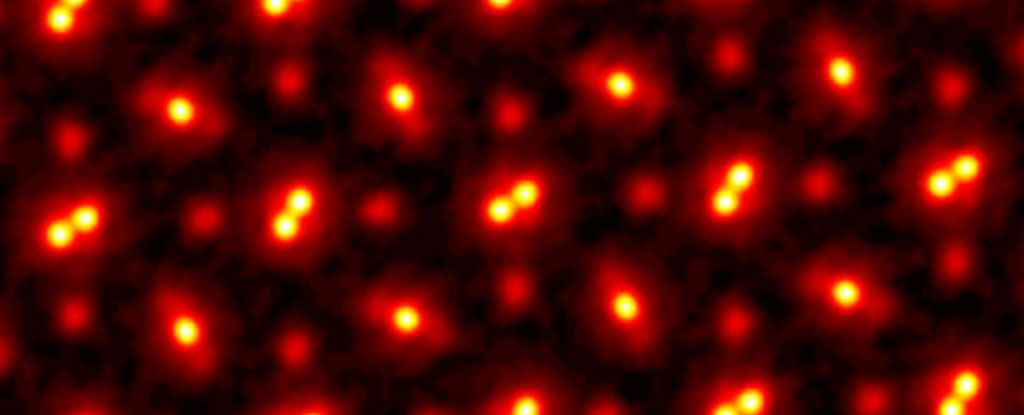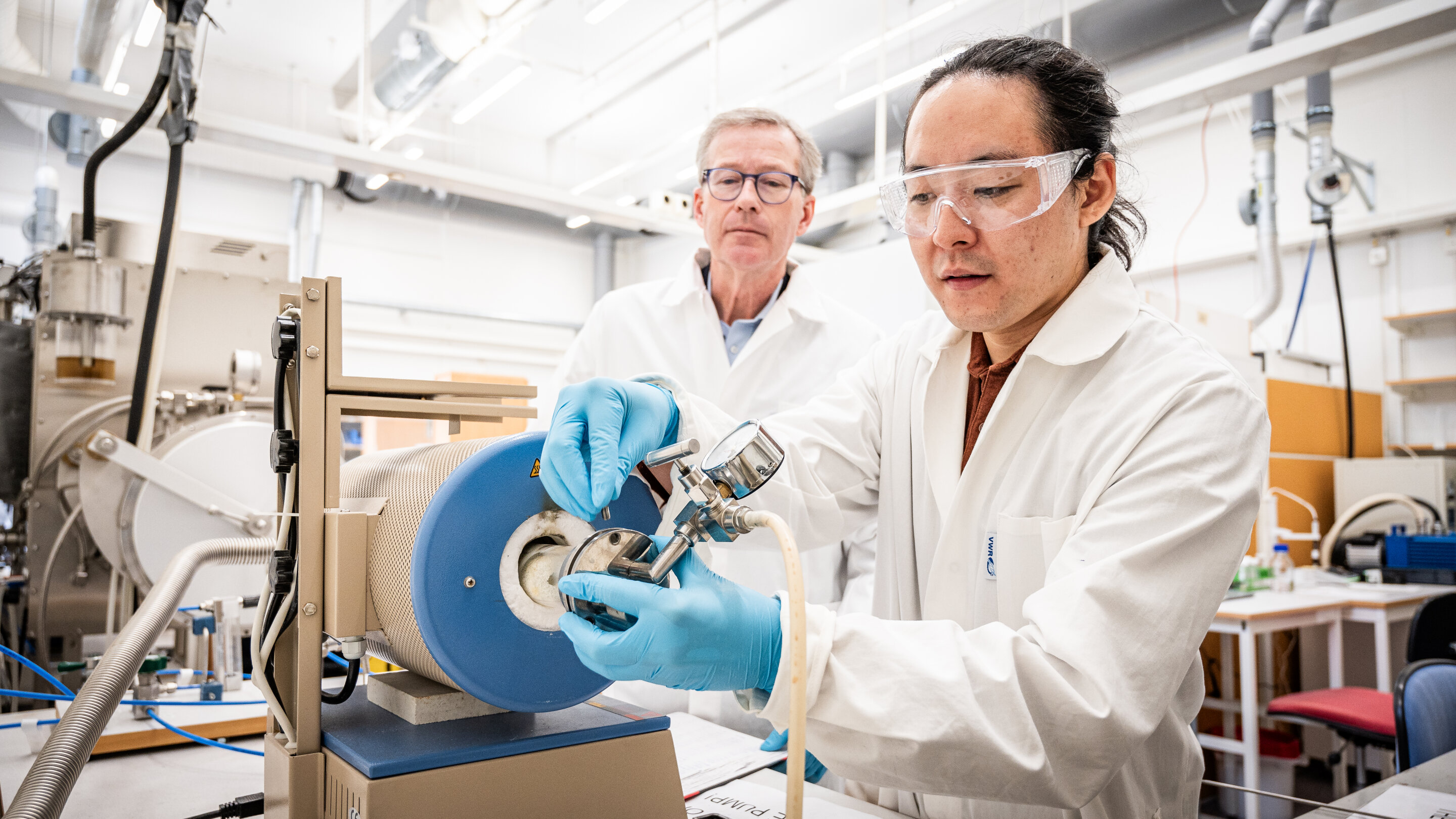
Physicists from Germany, Switzerland, and Australia have now placed new restrictions on where one example of a 'fifth' force may be hiding in the hearts of atoms, exchanging whispers between electrons and neutrons.

Atomic nuclei may be more complex than we thought, and may have implications for our understanding of the formation of heavy elements.

An experiment more than 10 years in the making has delivered its first glimpse of the hurricane of particles whirring inside subatomic particles called neutrons, laying the groundwork to solve a mystery deep in the heart of matter.

The image was made back in 2021 and those dots are the atoms in the crystal lattice of a piece of praseodymium orthoscandate (PrScO3), at a magnification of 100 million.

For the first time, scientists have managed to create sheets of gold only a single atom layer thick. The material has been termed goldene.

For the first time, scientists have measured the positions of individual atoms in 3D space in a single image, opening up a new way of observing quantum interactions in materials.

Scientists have unintentionally created the tiniest and tightest knot to date, earning a prestigious spot in the Guinness Book of World Records. This extraordinary microscopic knot is made up of only fifty-four atoms.

The Nobel Prize in physics was awarded Tuesday to three scientists who look at electrons in atoms during the tiniest of split seconds.

In a remarkable scientific breakthrough researchers have discovered the lightest isotope of the rare and rapidly decaying element, astatine.

Now we have the first X-ray taken of a single atom, courtesy of scientists from the US, according to a new paper published in the journal Nature.

Using the powerful Relativistic Heavy Ion Collider (RHIC) in US. scientists have shown how it's possible to glean precise details on the arrangement of gold's protons and neutrons using a kind of quantum interference never before seen in an experiment.

Physicists have just caught light acting the part of 'glue' between atoms, in a kind of loosely bonded molecule.

Each atom carries a small magnetic moment called spin. These spins influence each other. If you give one of them a push, they will start moving together in a very specific way. Atoms can feel each other.
Using advanced microscopy methods, scientists captured a moment of breaking of a chemical bond, around half a million times smaller than the width of a human hair. We are now the first generation of humans to have seen atoms.

An atom gives off energy and causes many other atoms in its vicinity to emit light as well. This phenomenon is called 'superradiance'. For the first time, this phenomenon has now bean measured in a solid-state system.